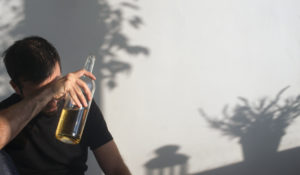In certain situations, the defense of intoxication in criminal law permits defendants to lessen their responsibility for committing a crime as a result of drug intoxication. The “mens rea,” a term used to describe the defendant's state of mind at the time of the crime, is sometimes necessary for the defendant to be found guilty.
This means that the defendant may be able to argue that he did not understand or realize what he was doing while committing the crime if he was under the influence of drugs or alcohol, which would lessen his liability.
Additionally, if a defendant has been found guilty, being intoxicated may be considered a mitigating circumstance that lessens punishments. However, depending on whether the drunkenness was voluntary and the degree of intent needed by the criminal charge, the intoxication defense only applies in specific situations.
Contact a skilled defense lawyer as soon as you can if you've been charged with a crime while under the influence of drugs or alcohol to find out if you qualify for this defense. Call Law Office of Michael L. Fell at (949) 585-9055 for help.
Intoxication: voluntary vs. involuntary
When someone accidentally drinks an intoxicant or is coerced into doing so, this is known as involuntary intoxication. For instance, if someone consumes brownies without realizing they contain marijuana or if a person's drink has been laced with a drug, they become inebriated unintentionally.
Crimes can be categorized as having either general or specific intent. Involuntary intoxication can prohibit the defendant from establishing the necessary intent for crimes requiring specific intent, meaning the defendant has the intention to do an act and obtain a specific consequence. For instance, the defendant might not be able to comprehend the significance of his actions.
As a result, involuntary drunkenness may be used as a defense against the allegations. As with general intent offenses, when the offender had the intention to conduct an act but not necessarily to attain a particular result, involuntary drunkenness may also be a defense. In certain situations, the defendant's intoxication may keep him from realizing that what he is doing is wrong.
Voluntary intoxication is different
When someone intentionally consumes an intoxicant, knowing that it would have an intoxicating effect, they are said to be voluntarily intoxicated. In comparison to involuntary intoxication, a defense of voluntary drunkenness is far more difficult to demonstrate. Even while the defense of voluntary intoxication may be offered, juries are less likely to accept it because the defendant caused the intoxication.
If you have questions or need help fighting criminal charges you are facing, contact Law Office of Michael L. Fell at (949) 585-9055 for a free legal consultation.


